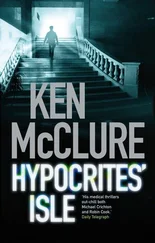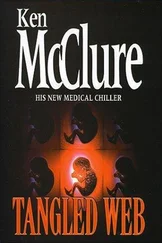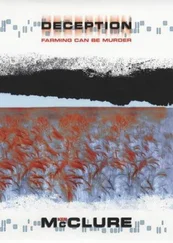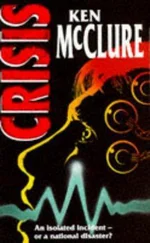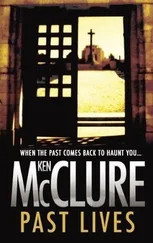“But he gave you a hundred quid,” said Bella, displaying a better memory for figures than McKirrop would have liked.
“But he was to give me another fifty when the story came out,” improvised McKirrop. “It must be out by now.”
“And you’ll give me twenty?”
“Right,” said McKirrop. “We’re friends aren’t we?”
Bella smiled, pleased at the notion. “Friends,” she repeated. “When do we see this guy?”
“I haven’t set up the meeting yet,” said McKirrop. “I’m going to phone him and ask for my money.”
“I’ll come with you,” said Bella, getting up unsteadily.
McKirrop managed to dissuade her by handing over some money. “Why don’t you get us a bottle and we can enjoy it because tomorrow there will be no drinking till after the meeting.”
Bella nodded sagely. “Right,” she said. “I always say that business and booze don’t mix.”
McKirrop’s palms were sweating as he put some change on the shelf beside the telephone in the booth. He dialled Sotillo’s number, half hoping that there would be no answer.
“Hello?”
“I want to speak to the doctor please.”
“Who is this?”
“Doctor McKirrop.”
“One moment.”
McKirrop smiled at his little joke. He didn’t have long to wait and could tell from the tentative way Sotillo answered the phone that he knew something was wrong. “Doctor McKirrop?”
“Just McKirrop. I’m no more a doctor than you are a journalist, Sotillo — or would you prefer Rothwell?”
“Who is this?”
“I think you know well enough.”
“What do you want?” asked Sotillo.
“Money. a lot of it.”
“Why on earth should I give you money? I’ve given you quite enough already.”
“Because if you don’t I’ll start talking and I have a feeling that you wouldn’t be too keen about that. Am I right?”
“Start talking?” snorted Sotillo. “Start talking about what? Who’d be interested in the ramblings of a drunken sot like you?”
“Maybe the police, maybe a real reporter. After all, it’s a good story isn’t it?”
“If you really think anyone will be interested in the babblings of an alcoholic misfit, go right ahead. You’re welcome,” said Sotillo.
McKirrop had been prepared for this. He kept his cool and played his trump card. He said, “Maybe they won’t believe me at first, Doctor, but your library card will help convince them. Then, when the rest of the gang describe you as the man who came down here pretending to be a journalist, the police just might get round to asking you for an explanation.”
There was a long pause and it pleased McKirrop. There was some background noise and he knew it would be Sotillo checking to see if his library card was really missing from his coat.
“What exactly do you want?” asked Sotillo, his voice had changed to a low whisper.
“I told you,” said McKirrop. “Money, a lot of it.”
“What’s a lot?”
“Five thousand pounds,” said McKirrop, shutting his eyes as he jumped in blindly with both feet.
Sotillo spluttered out the figure and said, “That’s ridiculous. You must be out of your mind. I just might run to five hundred, for the convenience of getting my card back you understand, but five thousand? You’re crazy.”
“Please yourself,” said McKirrop matter-of-factly. He said it as if he were about to put the receiver down.
“Wait!” said Sotillo. “Just lerugby internationalsrugby internationalst me think for a moment.”
McKirrop was excited. He knew he was on the verge of getting exactly what he wanted. It made him think he should have asked for more. Still, there would be other times...
“All right,” agreed Sotillo. “But I need time to get that sort of money.”
“Tomorrow,” said McKirrop.
“That’s not enough time,” protested Sotillo.
“Tomorrow without fail.” That’s what they always said in the films.
Sotillo sighed. “All right,” he said. “Come to the house at seven.”
“No,” said McKirrop. “No house. Come to the canal, the bridge where we spoke last time. Seven o’clock.”
“Very well.”
McKirrop put down the phone and felt weak in the knees. He had done it! Five thousand pounds. Never in his wildest dreams had he thought he’d get the lot. He was on his way to Provence.
The O’Donnells lived on the eighth floor of a tower-block in Scotland Road. It was one of four blocks that stood in a square. The front two overlooked to the bypass that ran round the east side of town; the rear two had an uninterrupted view of the railway marshalling yards. The height of the buildings ensured that there was a permanent echo down on the tarmac square they enclosed.
A group of teenage boys were playing football as Lafferty approached Melia Court. Their alternating laughter and curses drifted upwards on the night air. One of them noticed Lafferty’s collar and started a sniggering chorus of ‘All Things Bright and Beautiful’ to the spluttering amusement of his friends.
“Good Evening Boys,” said Lafferty facing them up.
Their heads went down and the football continued.
Lafferty held his breath all the way up in the lift lest the stench of urine overwhelm him. The suggestion in spray paint on the corrugated metal wall of the ‘vandal-proof’ car as to what should be done to the Holy Father barely registered with him. He had seen it so often before. The fact that Sharon loved Billy also failed to impress. The doors moved sluggishly back after an initial jerk and he stepped out on to the landing. He walked over to the balcony to take in a deep breath and the view.
The air wasn’t fresh; it smelled of fried onions and emulsion paint. There was a whiff of diesel and exhaust coming from the bypass and a faint drizzle settled on his forehead as he stood motionless at the intersection between two walkways. Laughter and curses and the sound of a plastic ball hitting off tarmac drifted up from below to compete with a nearby television set and an argument between a man and a woman on the floor below. Lafferty walked along to the O’Donnell’s door and rang the bell.
A woman appeared in the doorway, drying her hands on a tea cloth. “Father!” she exclaimed. “I wasn’t expecting you to call tonight.”
“Don’t upset yourself Jean. I just thought I might have a word with Mary if she was in,” said Lafferty. “If she’s not or if it’s inconvenient, there’s no problem. We can fix up another time.”
“Oh, she’s in Father,” said Jean O’Donnell, looking back over her shoulder with an uneasy air about her. “Come in, I’ll get her out of her room.”
Lafferty followed the diminutive woman in front of him into the living room. Twin boys, aged about ten were sitting on the couch watching television. “Hello you two,” said Lafferty, sitting down opposite them. “What are you watching?”
“The Bill,” replied one of them. His tone conveyed that they were not exactly pleased at being interrupted, nor were they at any great pain to conceal the fact.
“Put that television off, Neil,” commanded his mother. “Father Lafferty has come to see us.”
Jean O’Donnell kept a fixed smile on her face, hoping to counteract the surliness of her sons.
“Maybe they can watch next door?” suggested Lafferty. “Do they have a set in their room?”
Jean O’Donnell looked vaguely unhappy at the suggestion, but the boys were off like a shot. “It’s not right,” she said. “They shouldn’t be watching television while you’re here.”
Lafferty thought she seemed strangely vulnerable when she said it and could see what she was thinking. “Times change, Jean,” he said.
Читать дальше

